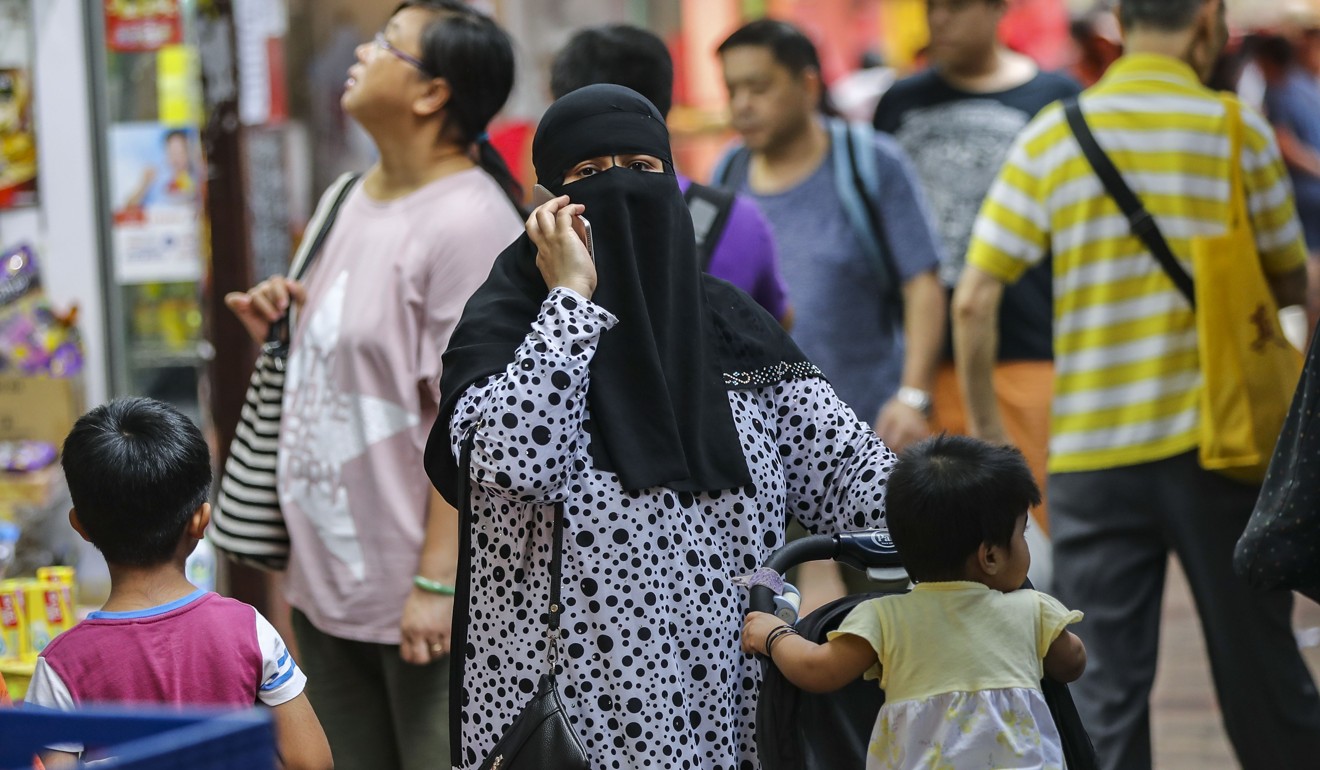
More language support urged for Hong Kong’s ethnic minority women who struggle with English or Chinese
Barrier especially daunting for those who look after household and need to communicate with hospitals and schools
Every month, a workers’ welfare group receives five to six requests for help with translation services at Hong Kong’s public hospitals, mostly from ethnic minority women.
“The [booking] system is in English and Chinese only,” explained Shoaib Hussain, assistant programme officer at the Catholic diocese of Hong Kong’s Kowloon Diocesan Pastoral Centre for Workers. “It’s very difficult for ethnic minorities, especially women, to book if they don’t understand English or Chinese.”
The language barrier – an issue for many among the city’s 264,000 ethnic minority residents – is especially daunting for women, who make up about half the group.
Non-profit organisation Translate for Her provides interpretation services for these women. It said they often took on some of their household’s most important responsibilities, such as health care and children’s education, but struggled to communicate with others and access information.

“They are mostly housewives. They stay at home,” said Sajila Khan, a programme worker for the NGO. “Their husbands go out to work with local Chinese people. They can learn. But women, if they need to stay at home and take care of the kids, they are the most affected by the language problem.”
In June and July, the NGO spoke to 50 ethnic minority women in the city, mostly from South Asian and Southeast Asian countries. With Chinese University’s sociology department, it co-hosted a forum on Saturday addressing the issues they face.
Hong Kong’s fight against racial discrimination goes to the UN
The four main speakers urged the government to invest more resources in hiring ethnic minority staff in different organisations and called for the provision of translation and interpretation services.
Hussain, who attended the forum, said there was a lack of language support in public hospitals, which require that interpretation services be booked at least one day in advance.
“In cases of emergency, there is no interpretation,” he added.
One ethnic minority security guard, he said, earlier this year fainted at work and stayed at Queen Elizabeth Hospital in Jordan for two weeks. The man did not receive any interpretation services in the first few days.
“The doctors and nurses could only communicate with him in simple words,” Hussain added. “Only after we pushed, the hospital arranged interpretation to explain what kind of diagnosis he had and what type of medicines he was given.”
One Pakistani woman whom Translate for Her spoke to said she could not speak English or Chinese, and she had to ask her child to take a day of leave from school to act as her interpreter when she needed to consult a doctor.
With regard to education, the NGO found that about half of the 50 women in its study could not understand Chinese yet still received Chinese-language school notices from time to time.
Lack of Cantonese makes finding job hard work for ethnic minorities
Khan, who can speak English and Chinese but cannot read or write the latter, said most posters for after-school activities in her community centre were written in Chinese only. As a result, she and many other ethnic minority women missed out on the events.
“The activities are important for the kids because they can improve their language,” she noted. “I wish there was more information written in other languages.”


